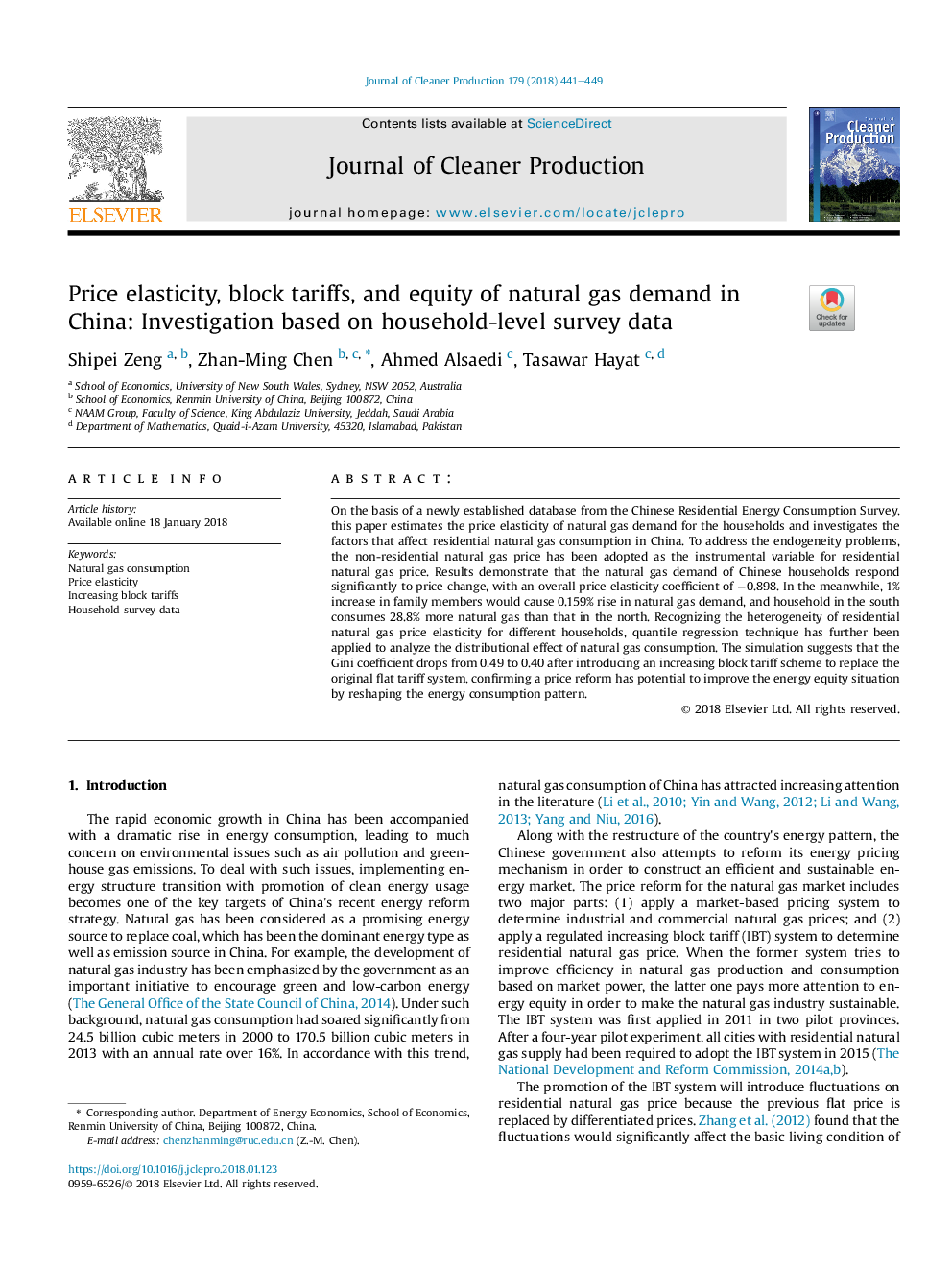ترجمه فارسی عنوان مقاله
الاستیسیته، تعرفه های بلوک، و تقاضای گاز طبیعی در چین: تحقیق بر اساس داده های نظرسنجی در سطح خانوار
عنوان انگلیسی
Price elasticity, block tariffs, and equity of natural gas demand in China: Investigation based on household-level survey data
| کد مقاله | سال انتشار | تعداد صفحات مقاله انگلیسی |
|---|---|---|
| 105543 | 2018 | 9 صفحه PDF |
منبع

Publisher : Elsevier - Science Direct (الزویر - ساینس دایرکت)
Journal : Journal of Cleaner Production, Volume 179, 1 April 2018, Pages 441-449
ترجمه کلمات کلیدی
مصرف گاز طبیعی، کشش قیمت، افزایش تعرفه های بلوک، داده های نظرسنجی خانگی،
کلمات کلیدی انگلیسی
Natural gas consumption; Price elasticity; Increasing block tariffs; Household survey data;

